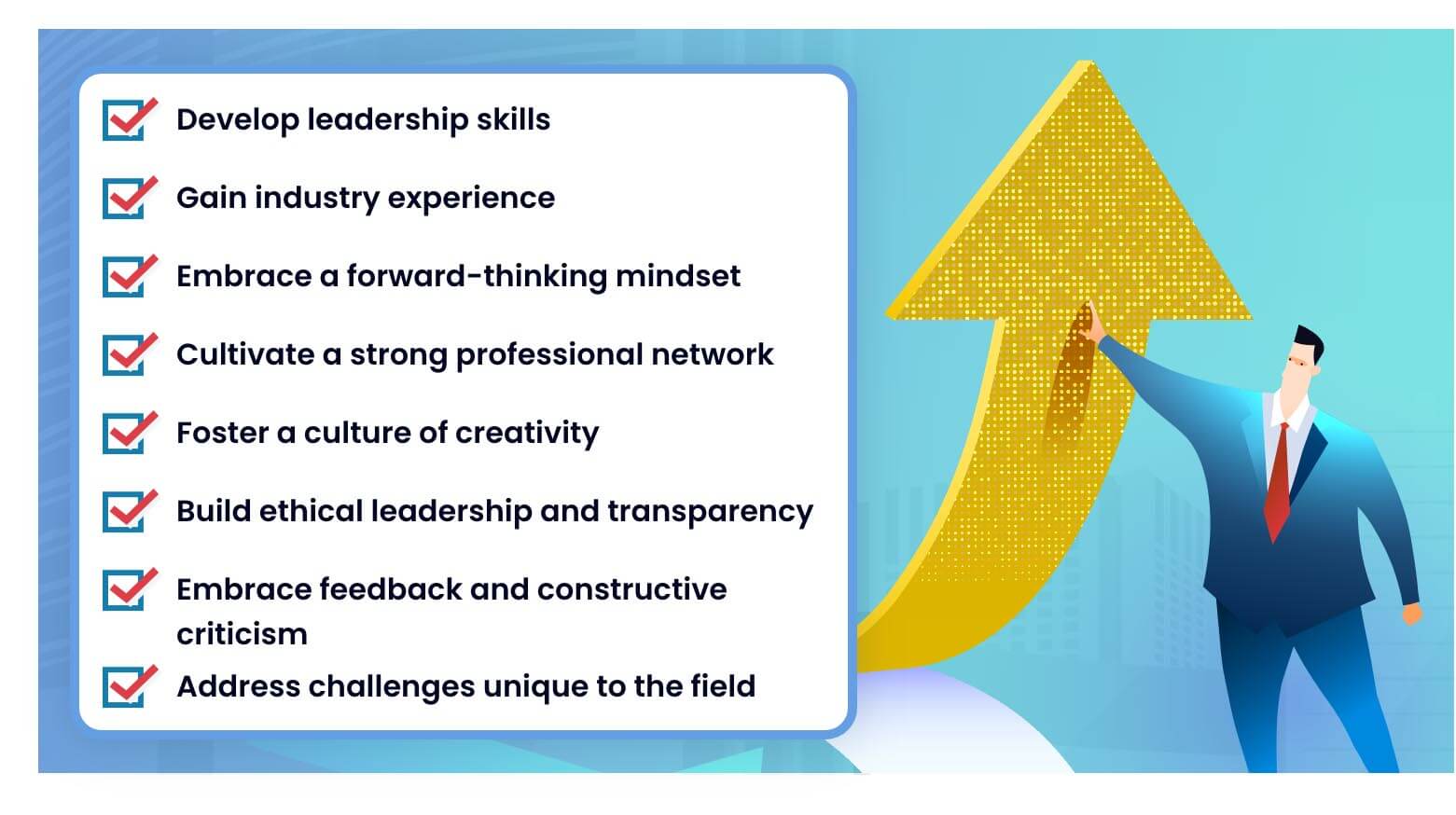The board of directors of an organization serves many functions, but its main duty can be narrowed down to choosing the right CEO to run the show (or in this case, the day-to-day operations). The job sounds simple enough, but it’s not easy. The choice of a CEO can make or break an organization, and that responsibility falls squarely on the directors’ shoulders.
With that in mind, read on to understand how to become a CEO, its role and responsibilities, as well as the qualifications of CEO they are usually looking for.
What is a CEO?
A Chief Executive Officer (CEO) holds the highest position in a company, responsible for setting strategic direction and managing operations. CEOs are elected by an effective board of directors with the purpose of making major corporate decisions and coordinating the efforts of all departments to fulfill the company’s goals.
A CEO is like a pilot flying an airplane through volatile marketing landscapes by identifying trends and opportunities for progress toward success.

What are the main functions of a CEO?
40% of CEOs believe their companies will cease to be profitable in the next 10 years if they continue with their current path, according to PwC’s 26th Annual Global CEO Survey 2023. Thus, they recognized the need to make their organizations receptive to shifting market trends to overcome the challenges brought on by the decline of the global economy.
To navigate future market challenges, CEOs are responsible for:
- Lead business growth: As the chief executive officer, they are responsible for spearheading business growth initiatives, including finding new opportunities, developing strategies, and managing risks.
- Build and maintain positive media relations: As the face and representative of the company to external affairs, they communicate the values, mission, and goals, while acting in the best interest of the company.
- Be answerable to the board: As an elected officer, a CEO is accountable to the board and should be able to deliver comprehensive board reports for transparency.
Key Qualities and Skills of an Effective CEO

A degree from a prestigious university does not guarantee success as a CEO. Only through hands-on experience and industry knowledge can one develop the competencies essential for the job. Continue reading to learn about the key qualities and skills of what it takes to be CEO.
1. Develop leadership skills
The CEO is a top leader and must possess an unshakable determination and a clear vision to propel the company to sustainable growth. They are strategic thinkers, analytical decision-makers, effective negotiators, collaborators, and resilient.
2. Gain industry experience
CEOs have extensive industry knowledge and expertise, which they draw upon when analyzing the dynamics of the market. This understanding is essential for making informed strategic decisions.
3. Embrace a forward-thinking mindset
CEOs are forward-thinking leaders with a strategic vision for the companies. They see the bigger picture and develop plans that will achieve long-term goals.
4. Cultivate a strong professional network
What does a CEO do to increase their influence? Networking among executives is a powerful way to build strategic relationships.
CEOs with strong professional networks are assets of their companies. Their networks give them access to privileges and resources that they can use to advance the company’s interests.
5. Foster a culture of creativity
CEOs are the primary advocates of innovation in their companies. They are empowering leaders who create an encouraging environment that pushes employees to think outside the box. These CEOs are also collaborators who generously appreciate their employees’ successes.
6. Build ethical leadership and transparency
Honesty and transparency are essential for building a positive work atmosphere. Top-level leaders may embody these principles by being candid and open with employees about company decisions.
7. Embrace feedback and constructive criticism
A good CEO delivers performance reports to the board of directors and is open to receiving feedback from them. They understand that constructive criticism is part of growth and helps create a collaborative environment where everyone feels empowered to share their insights.
8. Address challenges unique to the field
C-suite executives need to be problem-solvers who can overcome roadblocks ahead of their companies. They should proactively address challenges caused by market disruptions, regulatory changes, or technological advancements.
For example, tech CEOs need to stay ahead of the curve by investing in research and development, or they might partner with other companies to share resources. Healthcare CEOs need to ensure patient safety by implementing new regulations or training employees on new procedures.
What are the benefits of becoming a CEO?
Earning the title of CEO is a turning point in a person’s life indicative of their leadership and management expertise. It entails prestige, power, and influence. Here are some of the advantages of becoming a CEO.
Power and Prestige
The CEO position commands power and prestige. Their strong connections give them access to opportunities and resources that others do not have. They are often asked to give speeches, appear in interviews and magazines, and sit on other boards of directors.
Perquisites
CEOs are paid well and have perks that are not granted to employees at lower levels. These perks could range from profit sharing to cars, and housing, depending on the size, profitability, and culture of the company.
A CEO at a large corporation, for instance, is given a company car, a living allowance, and access to a corporate jet, while a CEO at a smaller company might get profit-sharing and paid travel costs.
Influence
CEOs are influential decision-makers in companies. Their subordinates trust and value their decisions and insights, which are inspired by years of industry experience. CEOs leverage their power and influence to lead their companies to success by setting strategic roadmaps and driving market innovations.
Given their influential roles, CEOs and their management teams need a reliable and secure communication channel to collaborate effectively. A solution like board management software can provide these leaders with a comprehensive platform for sharing internal information, such as financial reports, marketing plans, and product roadmaps.
Frequently Asked Questions about Becoming a CEO

How long does it take to become a CEO?
A study on 17,000 C-suite executives by CEO Genome Project discovered that it takes an ordinary employee an average of 24 years of professional work to earn the title of CEO.
The study then uncovered “CEO sprinters,” who reach the top in a shorter period. It claims that CEO sprinters make bolder career choices and act in unconventional ways. They take on small roles with greater responsibilities, take on jobs even when they lack experience, and exhibit their capacity to lead amid a crisis.
What age is the ideal for becoming a CEO?
The “ideal” age to become a CEO is not set. There are some like Mark Zuckerberg who became the CEO of Facebook and propelled the company to global recognition in his 20s. Others took a longer path like Doug McMillon who became CEO of Walmart at age 47.
The climb to the top is challenging and unique for individuals, but all successful CEOs share certain key qualities. They have strong leadership skills, extensive experience, industry knowledge, and a clear vision for the company.
How can I demonstrate my strategic vision as a future CEO?
Develop a clear vision statement, form strategies, and communicate them to your team in an empathic and persuasive way. Your vision should encompass the future while providing specific, measurable, achievable, relevant, and time-bound goals.
What educational background is ideal for becoming a CEO?
CEOs typically hail from disciplines of business, engineering, or law. There is no specific degree required for a CEO, however, these disciplines primarily concentrate on developing critical skills such as problem-solving, strategic thinking, and leadership.
Does a CEO own the company?
Not necessarily. For some, the CEO is selected by the board of directors, and in others, the CEO is the founder and holds the majority of the shares.
How Board Portals Help CEOs to be More Effective
A CEO spends a lot of time in meetings, reviewing proposals, drafting strategies, and making decisions. To execute things more efficiently, they should be utilizing technology like board portals to help streamline meetings.
Convene, a paperless board meeting solution, makes it easy for CEOs and directors to run meetings from any device. They can review documents, attend meetings, cast votes, and collaborate in real-time using Convene’s screen synchronization, annotations, and live presentation tool, among many other features.
Talk to us to learn more about Convene and how it can elevate your board meetings for more productive collaborations.
Jean is a Content Marketing Specialist at Convene, with over four years of experience driving brand authority and influence growth through effective B2B content strategies. Eager to deliver impactful results, Jean is a data-driven marketer who combines creativity with analytics. In her downtime, Jean relaxes by watching documentaries and mystery thrillers.











